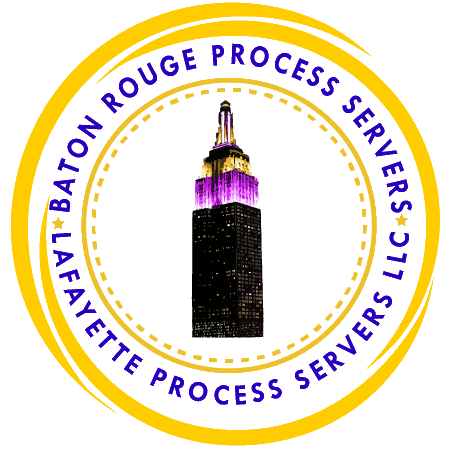In the legal world, process servers play a crucial role. They ensure that the wheels of justice continue to turn smoothly.
Process server jobs involve delivering legal documents to individuals involved in court cases. This ensures everyone gets a fair chance to present their story.
But what does a day in the life of a process server look like? What skills do you need to excel in this field?
In this article, we’ll delve into the role of process servers, the qualifications required, and how to find process server jobs near you.
Understanding the Process Server Profession
Process servers are an integral part of the legal system. They serve as the link between the courts and the parties involved in a case.
Their primary role is delivering or ” serving,” legal documents to individuals or entities. These documents notify the recipient of their involvement in a legal proceeding.
Process servers ensure that the legal process is fair and transparent. They uphold the principle of due process, a cornerstone of our legal system.
But there’s more to processing server jobs than just delivering papers. Let’s delve deeper into a process server, its legal significance, and its typical duties.
What is a Process Server?
A process server is a professional who delivers court documents to individuals or entities involved in a legal proceeding. This could be a lawsuit, a divorce, or a child custody case, among others.
They ensure that the recipient is aware of the legal action against them and give them the opportunity to respond.
The Legal Significance of Process Serving
Process serving is a critical part of the legal process. It ensures that everyone involved in a case is aware of it and has a chance to present their side.
Without process servers, the legal system would lack transparency and fairness.
Typical Duties and Responsibilities
Process servers have a range of duties. They deliver a variety of legal documents, including summonses, complaints, and subpoenas.
They also provide proof of service, confirming that the legal papers were delivered.
In some cases, process servers may also perform skip tracing to locate challenging individuals.
Qualifications and Skills for Process Server Jobs
Becoming a process server requires certain skills and qualifications. While the specific requirements may vary by state, some commonalities exist.
For instance, process servers must have a clean criminal record and be at least 18 years old in most jurisdictions.
Moreover, they should possess excellent communication skills. They often interact with people who may be upset or hostile.
Finally, process servers need to be detail-oriented. They must accurately complete and return proof of service documents.
Required Skills and Traits
Process servers need to be persistent and resourceful. They often have to locate individuals who do not want to be found.
They also need to be able to handle stressful situations calmly. When served with legal documents, they may encounter people who are angry or upset.
Education and Certification
While a high school diploma is often sufficient, some states require process servers to be licensed, court-appointed, or certified. This usually involves passing a test and undergoing a background check.
Continuing education is also essential. Laws and regulations change, and process servers need to stay updated.
The Process Server Job Market
The job market for process servers is quite diverse. Opportunities exist in both rural and urban areas.
Some process servers work independently, while law firms or process-serving agencies employ others. There are also opportunities in government agencies and courts.
The demand for process servers is steady. Serving legal documents is a necessary part of the legal process.
Finding Process Server Jobs Near Me
Finding process server jobs can be as simple as conducting an online search. Websites like Indeed and LinkedIn often have listings.
Networking is also essential. Joining professional associations can provide opportunities to meet potential employers.
Salary Expectations and Growth Potential
The salary for process server jobs can vary widely. It often depends on the number of documents served and the complexity of the cases.
However, the U.S. Bureau of Labor Statistics reports that the median annual wage for legal support workers, including process servers, was $53,920 in May 2019.
Process Servers vs. Legal Couriers
Process servers and legal couriers both play crucial roles in the legal system. However, their responsibilities differ significantly.
While process servers deliver legal documents and ensure due process, legal couriers transport various legal documents between law firms, courts, and other entities.
Comparing Roles and Responsibilities
Process servers are responsible for serving legal documents to individuals involved in a court case and must provide proof of service.
On the other hand, legal couriers transport documents. They do not serve them to individuals or provide proof of service.
Career Paths and Opportunities
Both process servers and legal couriers have opportunities for career growth. Process servers can advance to supervisory roles or start their agencies.
Legal couriers can also advance to managerial roles or start their courier services. Both professions offer the chance to gain valuable experience in the legal field.
Overcoming Challenges in Process Serving
Process serving is not without its challenges. One of the most common is dealing with evasive recipients.
Dealing with Evasive Recipients
Some individuals may try to avoid being served. In such cases, process servers must use their skills and experience to ensure the successful delivery of legal documents.
The Role of Technology and Adaptability
Technology plays a crucial role in overcoming challenges. GPS tracking and electronic documentation can help process servers locate recipients and provide proof of service. Adaptability is critical in this ever-evolving field.
Conclusion: Is a Process Server Job Right for You?
Becoming a process server can be a rewarding career for those with the right skills and mindset. It requires diligence, adaptability, and a solid understanding of the legal system.
If you’re interested in law and enjoy a dynamic work environment, a process server job could be an excellent fit for you. Consider the information provided in this guide as you explore this career path.


Recent Comments